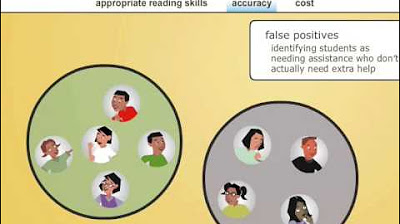Finland's Formula for School Success: Education Everywhere Series
Summary
TLDRIn Finland, a proactive approach to education focuses on early detection and intervention for students facing difficulties. Special education is common, with an emphasis on individual support plans and collaboration between subject teachers and special educators. Weekly student welfare meetings address a range of issues, from learning disabilities to behavioral concerns, aiming to prevent problems from escalating and ensuring equitable and high-quality education for all.
Takeaways
- 🏫 In Finland, many 15- or 16-year-olds have received special education throughout their schooling, making it a common rather than a 'special' service.
- 🔍 Finnish education policy emphasizes early detection and intervention for students facing difficulties, in contrast to other countries where support is often provided only after problems become evident.
- 🤝 Subject teachers in Finland work closely with special education teachers to address individual student challenges, such as concentration issues or difficulties with reading and listening, particularly in language and math.
- 📢 The concept of 'first intervention' is highlighted, where teachers contact special education teachers at the earliest signs of a student's struggle to arrange immediate support.
- 👩🏫 Special teachers are available for a limited time, during which they provide one-on-one assistance to students in separate classrooms, often accompanied by an individual learning plan.
- 📝 An individual learning plan is created for students who need additional support to ensure they do not fall behind in their studies.
- 👥 The student welfare team meets weekly to discuss various issues affecting students, including bullying, truancy, learning difficulties, and behavioral problems.
- 🌟 The student welfare group aims to address a wide range of problems, from home issues to learning disabilities and multicultural challenges, with a focus on early intervention.
- 🔑 The policy in Finland encourages students to openly seek help when needed, rather than hiding their difficulties, which can lead to more complex problems in later years.
- 💡 The Finnish approach to education appears to have a positive impact on both the equity and quality of the education system by providing early and targeted support to students.
Q & A
What is the general situation for 15- or 16-year-old students in Finland who are leaving basic school?
-Most of these students have been in special education throughout their schooling, which implies that special education has become quite common rather than being 'special'.
What does Pasi imply about the term 'special education' in the Finnish context?
-Pasi suggests that the term 'special education' has lost its original meaning, as it is now more common for students to have received special education services than not.
What is the Finnish educational policy regarding the early detection of difficulties in students?
-The policy emphasizes early detection of any difficulties or problems students may have, which is different from many other countries where interventions are implemented only after problems become too visible.
How do subject teachers in Finland collaborate with special education teachers?
-Subject teachers cooperate with special education teachers by contacting them at the first sign of a student having difficulties, which is referred to as the 'first intervention'.
What is the purpose of having a special teacher join a subject teacher in the classroom?
-The purpose is to focus on the student's problem and provide immediate help and support, ensuring that the student does not lag behind.
What is the role of the special teacher when working with a student who is struggling?
-The special teacher is available for a limited number of hours to work with the student individually, often in a separate classroom, and helps create an individual learning plan for the student.
What is the student welfare team and how often do they meet?
-The student welfare team is a group that gathers weekly to discuss various student issues, including bullying, skipping classes, learning difficulties, and behavioral problems.
What types of issues does the student welfare team address?
-The team addresses a wide range of issues including learning difficulties, behavioral problems, bullying, skipping classes, and multicultural challenges.
How does the student welfare group approach problems at school?
-The student welfare group aims to interrupt problems as soon as possible, focusing on early intervention to prevent issues from escalating.
What is the main value of the student welfare group according to Merja?
-The main value is to address problems early on, whether they are related to home issues, learning disabilities, or multicultural challenges.
How does the Finnish policy aim to affect the equity and quality of the educational system?
-The policy aims to make it easy for students to ask for help when needed, rather than hiding problems, which can lead to more difficult issues in later years, thus positively affecting both equity and quality.
Outlines

This section is available to paid users only. Please upgrade to access this part.
Upgrade NowMindmap

This section is available to paid users only. Please upgrade to access this part.
Upgrade NowKeywords

This section is available to paid users only. Please upgrade to access this part.
Upgrade NowHighlights

This section is available to paid users only. Please upgrade to access this part.
Upgrade NowTranscripts

This section is available to paid users only. Please upgrade to access this part.
Upgrade NowBrowse More Related Video

Pembelajaran Remedial Untuk Anak Disleksia

WWC Recommendation: Screen for reading problems at the beginning and middle of the year

Finland VISA Process 2024 | How to Apply for a Temporary Residence Permit in Finland ?

Mengenal Wamen Stella Christie Lebih Dekat

What We Get Wrong About Cancer

How to earn money as an UPSC Aspirant | UPSC aspirants study ke sath sath earn kaise Karen
5.0 / 5 (0 votes)